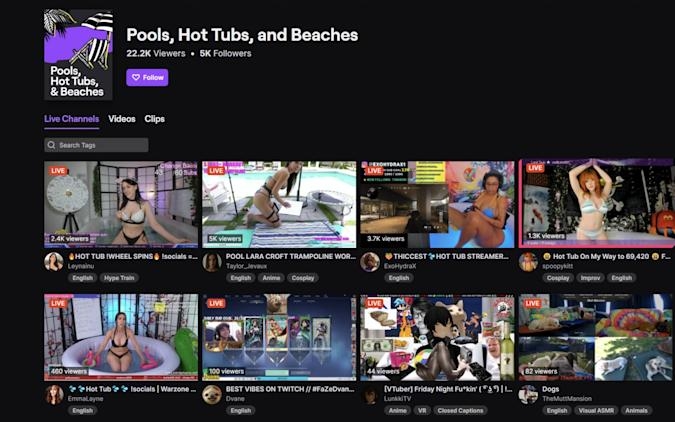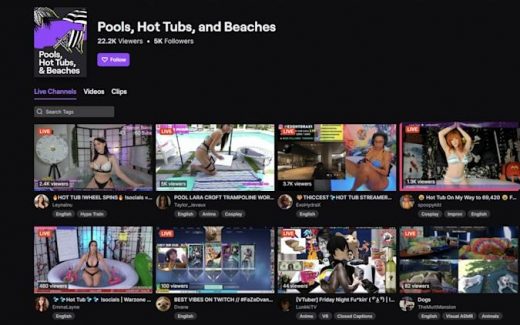Twitch offers slightly more information about suspensions
Twitch adds a dedicated ‘Hot Tubs’ category
The company says the section is not a “long-term solution.”


Twitch has added a dedicated “Pools, Hot Tubs and Beaches” section. The addition comes after the Amazon-owned company demonetized, without warning, the channels of several of its most popular creators who took part in the category that Twitch refers to as a “contextual exception” of its Nudity and Attire policy.
“We recently suspended advertising on some channels that were flagged by the majority of our advertiser base and failed to notify them,” the company said in a blog post it shared on Friday afternoon. “Our creators rely on us, and we should have alerted affected streamers to this change before it happened — it was a mistake not to do so.” The company added it’s working with individual streamers to restore their ability to make money off of ads.
Hot tub streams feature streamers wearing swimwear while sitting in a hot tub — or, more often, an inflatable pool — while talking to their viewers and playing games. The format has become so popular in recent weeks that it’s even been deconstructed at this point. As they most often feature women, sexism and harassment have followed, with some people feeling that those involved are somehow skirting Twitch’s rules. Under its community guidelines, the company allows streamers to appear on camera in a swimsuit in “contextually appropriate situations,” such as when they’re on a beach, at a festival and indeed when in a hot tub. That policy is not changing with today’s announcement.
“Being found to be sexy by others is not against our rules, and Twitch will not take enforcement action against women, or anyone on our service, for their perceived attractiveness,” the company said. “No one deserves to be harassed for the content they choose to stream, how they look, or who they are, and we will take action against anyone who perpetuates this kind of toxicity on our service.”
From the perspective of both Twitch users and advertisers, part of the problem was that the company grouped those clips under the “Just Chatting” category. The company also acknowledged that a lack of clarity in how it wrote its terms of use led to the situation. Over the coming months, Twitch plans to update its policies on sexually suggestive content. In the meantime, it notes the new section isn’t a permanent solution to the so-called “hot tub meta.” But what it does do is make it easier for people to avoid (or seek out) those streams, and gives brands more control over where their ads appear on the platform.
(35)


